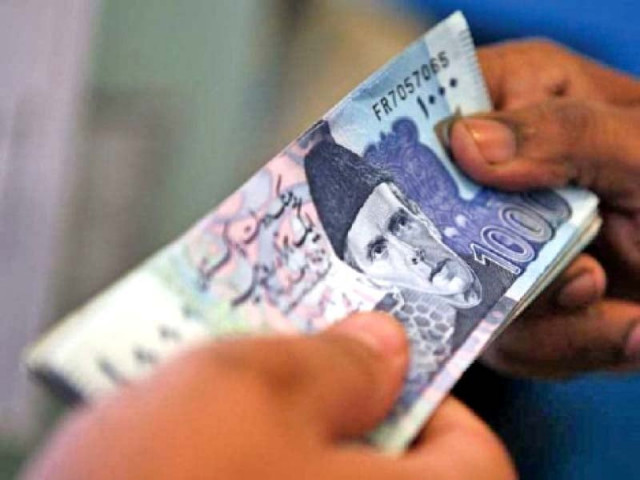Despite digitisation: Demand for currency notes soars
Security Papers posts record profit of Rs1.27 billion in fiscal year 2019-20

Despite government’s efforts to enhance digitisation aimed at containing the undocumented economy and complying with the Financial Action Task Force (FATF) directives, the demand for currency notes in Pakistan is growing more than ever before.
Security Papers Limited (SEPL), the company which produces paper for currency notes, recently posted the highest-ever profit after tax, revealed company officials at a corporate briefing this week.
SEPL posted a profit of Rs1.27 billion in fiscal year 2019-20, up 65.3% from the previous fiscal year. In addition, the enterprise recorded a gross profit of Rs1.89 billion, which was higher by 19.6% on a year-on-year basis.
Taurus Securities’ analyst Asjad Hussain said the increase in profit was attributable to the highest-ever growth in revenue, which came in at Rs4.9 billion in fiscal year 2019-20, up 22.5% compared to FY19.
He added that the company also paid the highest-ever dividend of 90% during the year.
“When the government faces budget deficit, it meets its expenses by printing new currency notes,” remarked economist Kaiser Bengali.
The government now takes loans from private banks as the International Monetary Fund (IMF) has slapped a condition, preventing it from borrowing from the central bank, which leads to printing of new currency notes.
“Government loans are akin to printing new banknotes because it is the only way through which the leadership can pay its debt,” said the economist.
Pakistan recorded a budget deficit of around 9.2% of gross domestic product (GDP) in fiscal year 2019-20 while the target was to curtail it to 7%.
A few months ago, the government announced an economic relief package worth Rs1.2 trillion for the Covid-19-hit economy, which might have played a big role in increasing the circulation of new banknotes, said a source privy to the government’s course of action.
“Under the Ehsaas emergency cash programme, the authorities disbursed Rs12,000 each to the needy,” he said.
The country has been struggling to curb the undocumented economy whose share is more than 35% as per estimates of some economists. Other economists are of the view that the share of undocumented economy is equal to the formal economy.
Although inflation fell to 8.73% in August 2020, it stood at 14% just a few months ago.
While the trend of digital transactions is picking up momentum in the country, as reported by many online businesses during the Covid-19-induced lockdown, the growing need for currency notes is eclipsing the slow-paced digitisation.
In the third quarter (Jan-Mar) of FY20, the country witnessed Rs145 trillion worth of transactions, according to the Payment System Transaction Summary of the State Bank of Pakistan (SBP).
Out of the total, Point of Sales (POS) - debit card swipe machines - generated only Rs102.5 billion worth of transactions while mobile phone banking recorded transactions of Rs467.5 billion and internet banking Rs748 billion.
E-commerce transactions were recorded at a meagre Rs7.1 billion, followed by call centre interactive voice response (IVR) banking with Rs3.2 billion.
Pakistan Real-time Interbank Settlement Mechanism (PRISM) system transactions were recorded at Rs95 trillion, followed by paper-based transactions at Rs32 trillion, e-banking with Rs17.4 trillion, Real-time Online Banking (RTOB) with Rs14 trillion and ATM with Rs1.7 trillion.
Only 20% of the country’s population has bank accounts. Authorities have devised schemes for branchless mobile banking such as easypaisa wallet and Jazz wallet, however, such services lack efficiency due to their exorbitant fee and taxes.
Keeping in view the ground realities, the management of SEPL remains optimistic about the rise in demand for banknotes and other security papers. However, it believes that the second wave of Covid-19 can seriously impact its business, according to the briefing.
Published in The Express Tribune, September 26th, 2020.
Like Business on Facebook, follow @TribuneBiz on Twitter to stay informed and join in the conversation.


















COMMENTS
Comments are moderated and generally will be posted if they are on-topic and not abusive.
For more information, please see our Comments FAQ